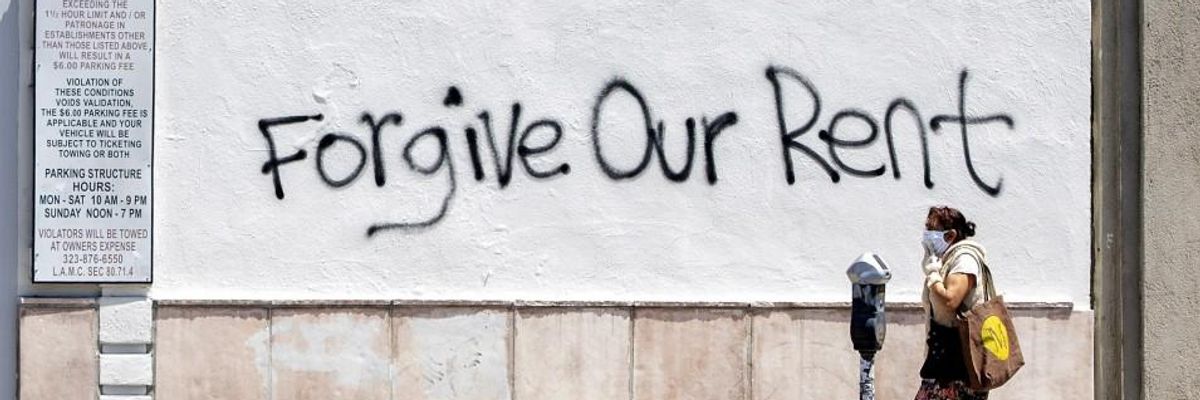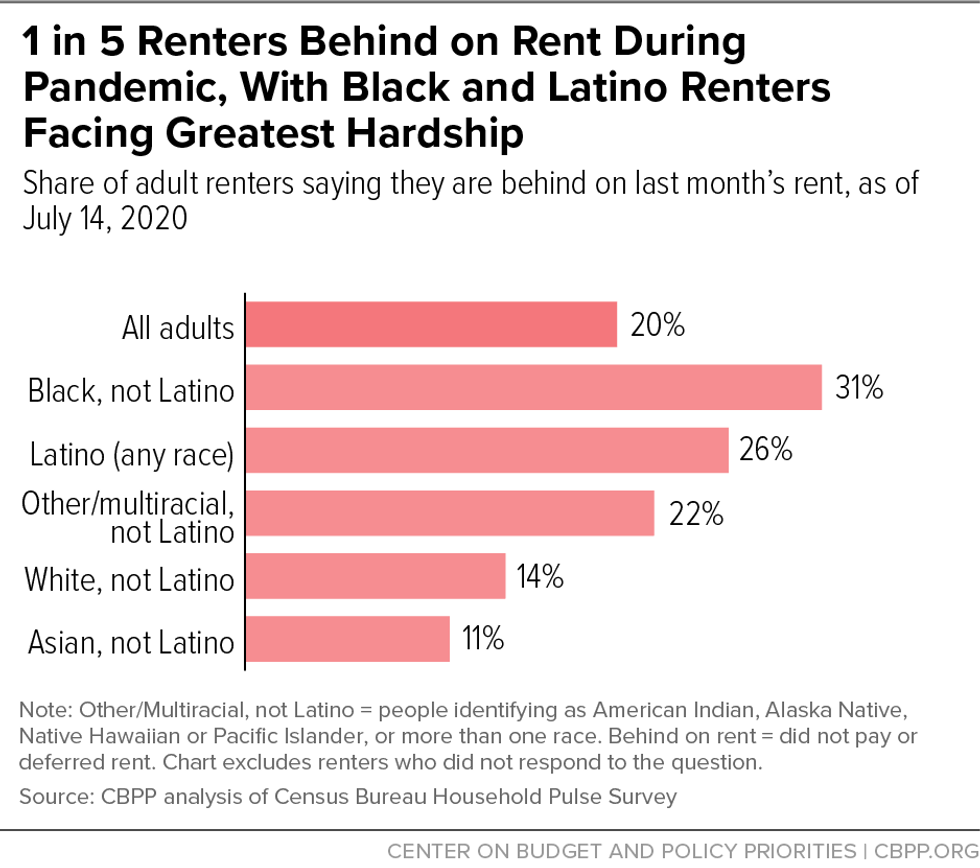While the Trump administration's announcement Tuesday of a broad moratorium on evictions for nonpayment of rent through the end of 2020 was praised by some as a positive step, critics warned that the new policy--which lacks the emergency rental forgiveness or assistance called for by progressives--only postpones a wave of displacement and urged lawmakers to pursue a coronavirus relief package that includes robust housing aid.
"You can't just provide more time to cover months of missed rent when there's been no economic aid. It only delays crisis."
--Cori Bush
The Centers for Disease Control and Prevention's moratorium, effective upon publication on Friday, Sept. 4 through Dec. 31, is intended to "prevent the further spread of Covid-19." Tenants must apply for protection, demonstrating loss of income, attempts to pay partial rent, and proof that eviction would likely render them homeless or doubled-up.
Crucially, the measure does not relieve renters of their obligation to pay rent, meaning that millions of households will continue to accrue a debt that they will be expected to pay back on Jan. 1, 2021.
While the CDC's actions have been welcomed as a positive short-term intervention in terms of public health, several housing and health justice advocates and policy experts have pointed out that "this is a band-aid, not a solution," as the Center on Budget and Policy Priorities' Peggy Bailey put it.
Diane Yentel, president and CEO of the National Low Income Housing Coalition, called the national moratorium on evictions "long overdue and badly needed. As we've said for five months, the very least the federal government ought to do is assure each of us that we won't lose our homes in the middle of a global pandemic."
Nevertheless, Yentel noted, the CDC policy provides only temporary relief.
"While an eviction moratorium is essential," said Yentel, "it is a half-measure that extends a financial cliff for renters to fall off when the moratorium expires and back rent is owed."
Bailey added that the moratorium "does little to adequately meet the needs of millions of families who are behind on their rent... it is unrealistic to think that low-income households will be able to pay the back rent, putting them at risk of eviction in December."
Because "this action delays but does not prevent evictions," as Yentel put it, researchers and activists are pushing for Congress and the White House to "get back to work" on a Covid-19 bill that includes unemployment insurance and rent relief.
For the Democratic Socialists of America's Housing Justice Commission, "canceling rent is the only just solution to the Covid housing crisis."
Cori Bush, the Democratic nominee for Missouri's 1st congressional district, called for comprehensive rent forgiveness, arguing that "you can't just provide more time to cover months of missed rent when there's been no economic aid."
Struggling tenants are not the only ones clamoring for support. Landlords, who Bailey said could be left "in the lurch" due to the absence of aid, are also pushing for the federal government to provide rental assistance that can help them meet their financial obligations to creditors.
While White House officials have justified the move to temporarily halt evictions, which Bloomberg called an "unprecedented use of executive authority," by arguing that "the CDC Director has authority to take measures he deems reasonably necessary to prevent the spread of communicable diseases," experts still expect legal challenges from property holders who are upset about lost income.
Emily Benfer, a lawyer specializing in health and housing justice, argued that the CDC's measure must be paired with funding to "protect renters, landlords, and communities from harm."
Like Bailey and Benfer, Yentel argued that only an eviction ban combined with substantial rent relief "would keep renters stably housed during and after the pandemic." Yentel believes that a new bill must include "at least $100 billion in emergency rental assistance."
In addition to pointing out the limits of an eviction moratorium that is not coupled with rent relief, other commentators have questioned President Donald Trump's motives and timing, suggesting that his administration may be acting cynically and opportunistically in the lead-up to November's election.
Rob Gatter, a professor of health law at Saint Louis University School of Law, wrote that the "CDC's statutory authority to regulate/order has existed this entire pandemic."
"So why exercise it now and not sooner; why this order and not another?" Gatter asked. "The answer is in the nation's dangerous partisan politics."


